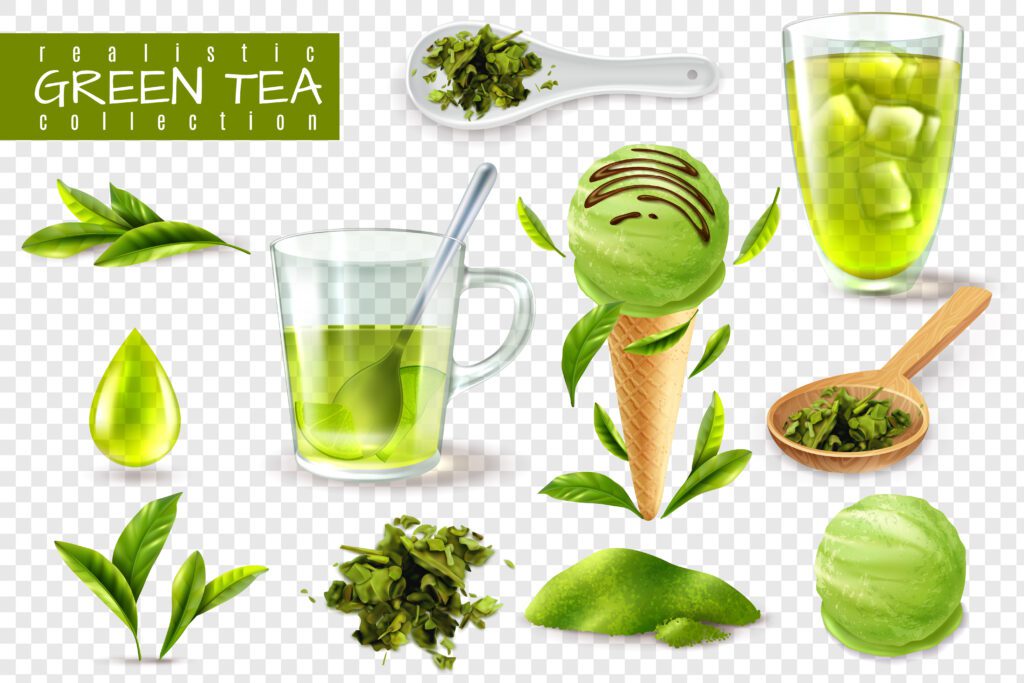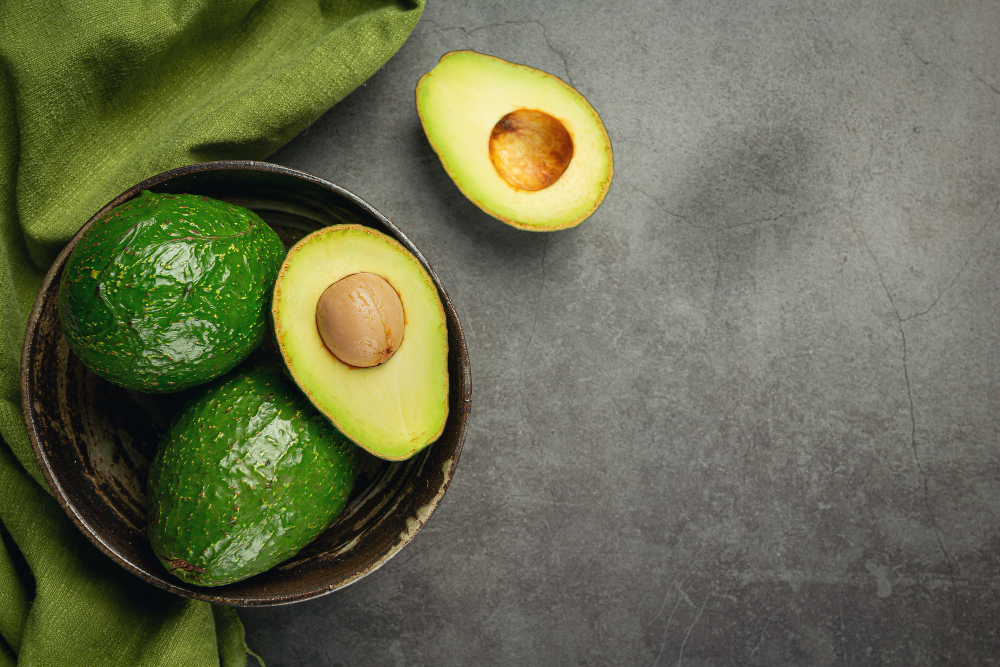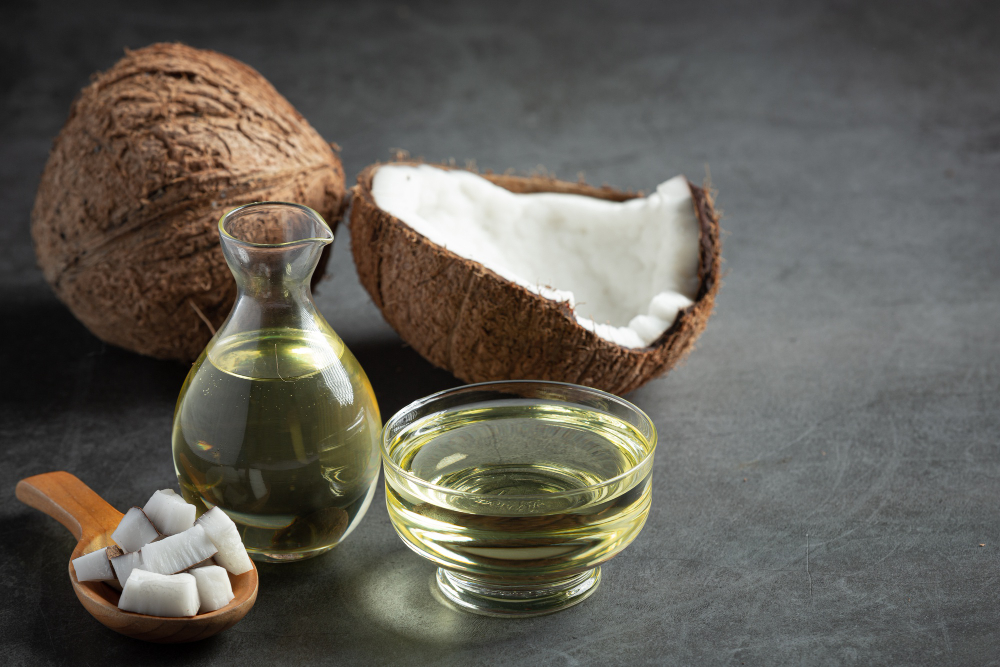
Are you on a quest to shed those extra pounds and achieve a healthier, fitter you? While exercise and overall calorie intake are crucial, it’s equally important to incorporate natural fat-burning foods into your diet.
These foods not only rev up your metabolism but also provide essential nutrients to support your weight loss journey. In this blog post, we’ll explore 10 incredible natural fat-burning foods that you should consider including in your daily meals. Let’s dive in!
Green Tea

When it comes to the world of weight loss and healthy eating, green tea has often been hailed as a secret weapon. Renowned for its antioxidant-rich composition and numerous health benefits, green tea, specifically its active component, epigallocatechin gallate (EGCG), has garnered attention for its potential to aid in fat burning.
The EGCG Effect
EGCG, a powerful antioxidant found in green tea, has been the subject of numerous studies examining its effects on metabolism and fat oxidation. Research suggests that EGCG can boost metabolism and improve the body’s ability to break down fat.
How to Incorporate Green Tea into Your Diet?
To harness the potential fat-burning benefits of green tea, consider these practical tips:
1- Choose the Right Tea: Opt for high-quality green tea leaves or bags. Loose-leaf green tea is often recommended for a richer flavor and more potent EGCG content.
2- Brew It Properly: Steeping green tea in hot water (not boiling) for about 3-5 minutes is ideal to extract the maximum nutrients without making it bitter.
3- Avoid Adding Calories: Be mindful of what you add to your green tea. Adding sugar, honey, or excessive amounts of milk can increase calorie intake and negate its benefits.
4- Consistency Is Key: To potentially see effects on fat burning, make green tea a consistent part of your daily routine. Aim for 2-3 cups per day.
5- Combine with a Healthy Lifestyle: Green tea alone is not a magic solution for weight loss. Combine its consumption with a balanced diet and regular exercise for the best results.
Lean Proteins

Lean protein is indeed a valuable component of a fat-burning diet. Including lean protein sources in your meals can help you feel full and satisfied while supporting your body’s efforts to burn fat. Here’s why lean protein is considered a fat-burning food:
1- Metabolism Boost: Protein has a higher thermic effect of food (TEF) compared to carbohydrates and fats. This means your body burns more calories during the digestion and absorption of protein, which can contribute to an increased metabolism.
2- Appetite Control: Protein-rich foods help curb hunger and cravings, reducing the likelihood of overeating or snacking on unhealthy options. This can lead to a lower overall calorie intake
3- Preservation of Lean Muscle: When you’re aiming to lose weight, it’s essential to preserve lean muscle mass. Protein supports muscle maintenance and growth, ensuring that the weight you lose comes from fat rather than muscles
4- Stabilizing Blood Sugar: Protein helps stabilize blood sugar levels, preventing spikes and crashes that can lead to cravings for sugary or high-calorie foods.
5- Fat Oxidation: The digestion and absorption of protein can enhance the body’s ability to oxidize (burn) stored fat for energy, especially when combined with regular exercise.
Berries

Berries, such as strawberries, blueberries, raspberries, and blackberries, are often considered “fat-burning” foods due to their numerous health benefits and potential contributions to weight management. Here’s why berries are regarded as a helpful addition to a fat-burning diet:
1- Low in Calories: Berries are relatively low in calories, making them a satisfying and guilt-free snack or addition to meals. They provide natural sweetness without the excessive calories found in many sugary snacks.
2- High in Fiber: Berries are rich in dietary fiber, which promotes feelings of fullness and helps control appetite. This can lead to reduced calorie intake and better weight management.
3- Antioxidant-Rich: Berries are packed with antioxidants, including vitamins like vitamin C and various phytonutrients. Antioxidants help protect cells from damage and may support overall health, including metabolic processes.
4- Support for Fat Metabolism: Some studies suggest that compounds found in berries, such as anthocyanins, may have a positive impact on fat metabolism by potentially reducing fat storage and enhancing fat oxidation.
5- Blood Sugar Control: Berries have a relatively low glycemic index, meaning they have a minor impact on blood sugar levels. Stable blood sugar levels can help prevent energy crashes and cravings for high-calorie, sugary foods.
6- Hydration and Nutrient Density: Berries contain a high water content, contributing to hydration. Staying well-hydrated can be essential for overall health and may support metabolic processes
Avocado

Avocados are often considered a valuable addition to a weight loss or fat-burning diet, despite their relatively higher calorie content, because they offer numerous health benefits that can support these goals. Here’s why avocados are regarded as a helpful food in this context:
1- Healthy Fats: Avocados are rich in monounsaturated fats, particularly oleic acid, which is known for its potential to increase feelings of fullness and reduce hunger. These healthy fats can help control appetite and prevent overeating.
2- Fiber: Avocados are a good source of dietary fiber, which promotes satiety and supports digestive health. The fiber content can help regulate blood sugar levels, reducing spikes and crashes that can lead to cravings for high-calorie foods
3- Nutrient Density: Avocados are packed with essential vitamins and minerals, including potassium, vitamin K, vitamin E, and various B vitamins. These nutrients are crucial for overall health and metabolic processes.
4- Metabolism Support: The combination of healthy fats and fiber in avocados can help stabilize blood sugar levels and improve insulin sensitivity. This may contribute to better metabolic function and fat loss over time
5- Anti-Inflammatory Properties: Chronic inflammation is often associated with obesity and metabolic syndrome. Avocado’s antioxidants, like vitamin E and various carotenoids, may help reduce inflammation in the body.
6- Enhanced Nutrient Absorption: Avocado’s healthy fats are known to enhance the absorption of fat-soluble vitamins (A, D, E, and K) and other nutrients from other foods you consume
Chili Peppers

Chili peppers, specifically the compound called capsaicin found in them, are often referred to as natural “fat burners” due to their potential to boost metabolism and aid in weight management. Here’s how chili peppers can be associated with fat burning:
1- Metabolism Boost: Capsaicin is known to increase thermogenesis, which is the process of heat production in the body. This means that when you consume chili peppers or capsaicin-containing foods, your body may burn more calories as it generates heat.
2- Appetite Suppression: Capsaicin can have an appetite-suppressing effect, leading to reduced calorie intake. Some people find that spicy foods make them feel full faster, potentially preventing overeating
3- Fat Oxidation: Research suggests that capsaicin may enhance the body’s ability to burn fat for energy by increasing the utilization of fat stores. This can contribute to weight loss over time.
4- Blood Sugar Control: Some studies indicate that capsaicin can help regulate blood sugar levels, which is beneficial for preventing energy spikes and crashes that can lead to cravings for high-calorie foods
Oatmeal

Oatmeal is often considered a beneficial food for weight management and fat loss due to its specific nutritional properties. Here’s why oatmeal can be viewed as supportive of fat burning:
1- High in Soluble Fiber: Oatmeal is rich in soluble fiber, primarily beta-glucans. This type of fiber forms a gel-like substance in the digestive tract, which can help you feel full and satisfied, reducing the likelihood of overeating or snacking on high-calorie foods.
2- Sustained Energy: The complex carbohydrates in oatmeal provide a steady release of energy, preventing blood sugar spikes and crashes that can lead to cravings for sugary or high-calorie snacks.
3- Low Glycemic Index: Oatmeal has a low glycemic index, meaning it has a minimal impact on blood sugar levels. This can help control appetite and promote stable energy throughout the day.
4- Promotes Fullness: Oatmeal has been shown to increase feelings of fullness and reduce hunger, which can lead to a reduced calorie intake over time.
5- Rich in Nutrients: Oatmeal is a good source of essential vitamins and minerals, including B vitamins, iron, magnesium, and phosphorus. These nutrients are important for overall health and metabolic function.
6- Versatility: Oatmeal is a versatile food that can be customized with various toppings and additions, such as fresh berries, nuts, seeds, or a drizzle of honey, to make it a satisfying and nutrient-dense meal
Greek Yogurt

Greek yogurt is often considered a valuable food for those looking to manage their weight and support fat loss. While it doesn’t directly burn fat, Greek yogurt offers several attributes that can contribute to weight management:
1- High Protein Content: Greek yogurt is notably rich in protein, which is essential for building and maintaining muscle mass. A higher muscle mass can increase your metabolism, making it easier to burn calories and potentially lose fat.
2- Satiety and Appetite Control: Protein is known to promote feelings of fullness and reduce hunger. Including Greek yogurt in your diet can help control your appetite and prevent overeating or snacking on high-calorie foods.
3- Metabolism Support: The thermic effect of protein means that your body expends more energy during the digestion and absorption of protein-rich foods like Greek yogurt. This increased calorie burn can support weight management.
4- Probiotics: Greek yogurt often contains beneficial probiotic bacteria, which can support a healthy gut microbiome. Emerging research suggests that a balanced gut microbiota may play a role in weight regulation and fat metabolism.
5- Nutrient Density: Greek yogurt provides essential nutrients such as calcium, potassium, and B vitamins, which are important for overall health and metabolic processes.
Green Leafy Vegetables

Green leafy vegetables are indeed excellent additions to a weight management or fat loss diet due to their low-calorie content, high nutrient density, and various health benefits. While they don’t have direct fat-burning properties, they offer several advantages that support weight loss and overall well-being:
1- Low in Calories: Green leafy vegetables, such as spinach, kale, Swiss chard, and collard greens, are low in calories but high in volume. They help fill you up with minimal calorie intake, making them valuable for controlling hunger and calorie consumption.
2- Fiber-Rich: These vegetables are abundant sources of dietary fiber, which aids in digestion, promotes feelings of fullness, and reduces the likelihood of overeating or snacking on high-calorie foods.
3- Nutrient Density: Green leafy vegetables are packed with essential vitamins (like vitamins A, C, K, and folate), minerals (including iron and calcium), and antioxidants. These nutrients support overall health and can help your body function optimally while losing weight.
4- Hydration: Leafy greens have a high water content, contributing to hydration and helping you feel satisfied. Proper hydration can support metabolism and energy levels.
5- Low in Net Carbs: Leafy greens are low in net carbohydrates (total carbs minus fiber), making them suitable for low-carb diets or those focused on managing blood sugar levels.
6- Alkaline Properties: Some proponents of alkaline diets suggest that green leafy vegetables help create a more alkaline environment in the body, which may support overall health and potentially impact weight management.
7- Versatility: These vegetables are versatile and can be used in salads, smoothies, soups, stir-fries, and as sides, making it easy to incorporate them into a variety of meals.
Nuts

Nuts are a nutritious and satisfying addition to your diet, and they can play a role in supporting weight management and fat loss, despite their relatively high calorie content. Here’s how nuts can be beneficial in this context:
1- Rich in Healthy Fats: Nuts are a source of heart-healthy monounsaturated and polyunsaturated fats, including omega-3 fatty acids. These fats help keep you feeling full and satisfied, potentially reducing overall calorie consumption.
2- Protein and Fiber: Nuts are also a good source of both protein and dietary fiber. Protein promotes feelings of fullness and helps control appetite, while fiber aids in digestion and supports satiety.
3- Metabolism Support: The healthy fats in nuts can help stabilize blood sugar levels, which may aid in controlling cravings for high-sugar, high-calorie foods. Stable blood sugar levels can also support a healthy metabolism.
4- Nutrient Density: Nuts are packed with essential nutrients like vitamin E, magnesium, potassium, and antioxidants, which are important for overall health and metabolic processes.
5- Satiety: The combination of fats, protein, and fiber in nuts can make you feel full and satisfied, potentially reducing the desire to snack on less healthy, calorie-dense options.
6- Portion Control: While nuts are calorie-dense, they can still be part of a weight-conscious diet. The key is portion control. A small serving of nuts (about a handful) can provide satiety without excessive calorie intake.
7- Cravings Management: Nuts’ rich flavors and textures can satisfy cravings for crunchy or savory snacks, helping you stay on track with your weight management goals.
Coconut Oil

Coconut oil has been promoted as a fat-burning food in some circles, but its effects on weight loss are a topic of debate among nutrition experts. Here’s what you should know about coconut oil and its potential role in fat burning:
1- Medium-Chain Triglycerides (MCTs): Coconut oil contains a high percentage of medium-chain triglycerides (MCTs), specifically lauric acid, caprylic acid, and capric acid. MCTs are shorter in length than the long-chain fatty acids found in most dietary fats. Some studies suggest that MCTs can be more easily converted into energy and less likely to be stored as fat compared to long-chain fatty acids.
2- Metabolism Boost: It’s believed that MCTs in coconut oil may increase thermogenesis, which is the process of burning calories for heat. This could potentially lead to a slight boost in metabolism.Appetite Suppression: MCTs may promote feelings of fullness and reduce appetite, potentially leading to reduced calorie intake.
3- Energy Source: The body can rapidly convert MCTs into energy, making them a quick and accessible source of fuel, which could be beneficial for individuals following specific low-carb or ketogenic diets.
However, it’s important to consider some key points:
1- Calorie Density: Coconut oil is calorie-dense, containing approximately 120 calories per tablespoon. While it may have potential benefits, overconsumption can easily lead to excess calorie intake, which can hinder weight loss.
2- Moderation: If you decide to incorporate coconut oil into your diet, it’s important to do so in moderation and consider the overall composition of your diet. Replacing other saturated fats with coconut oil may not provide significant health benefits.
3- Individual Variability: The effects of coconut oil on weight management and metabolism can vary from person to person. What works for one individual may not work for another.
My Advice
No single food will magically melt away fat. A balanced diet, regular exercise, and a sustainable lifestyle are essential for successful weight loss. Incorporating these natural fat-burning foods into your meals, along with maintaining a calorie deficit, can give your weight loss efforts a significant boost.
Incorporating these 10 natural fat-burning foods into your diet can help you achieve your weight loss goals more effectively. Remember to stay hydrated, get enough sleep, and maintain a positive mindset throughout your journey. With the right combination of healthy foods and lifestyle choices, you’ll be well on your way to a healthier, happier you.
